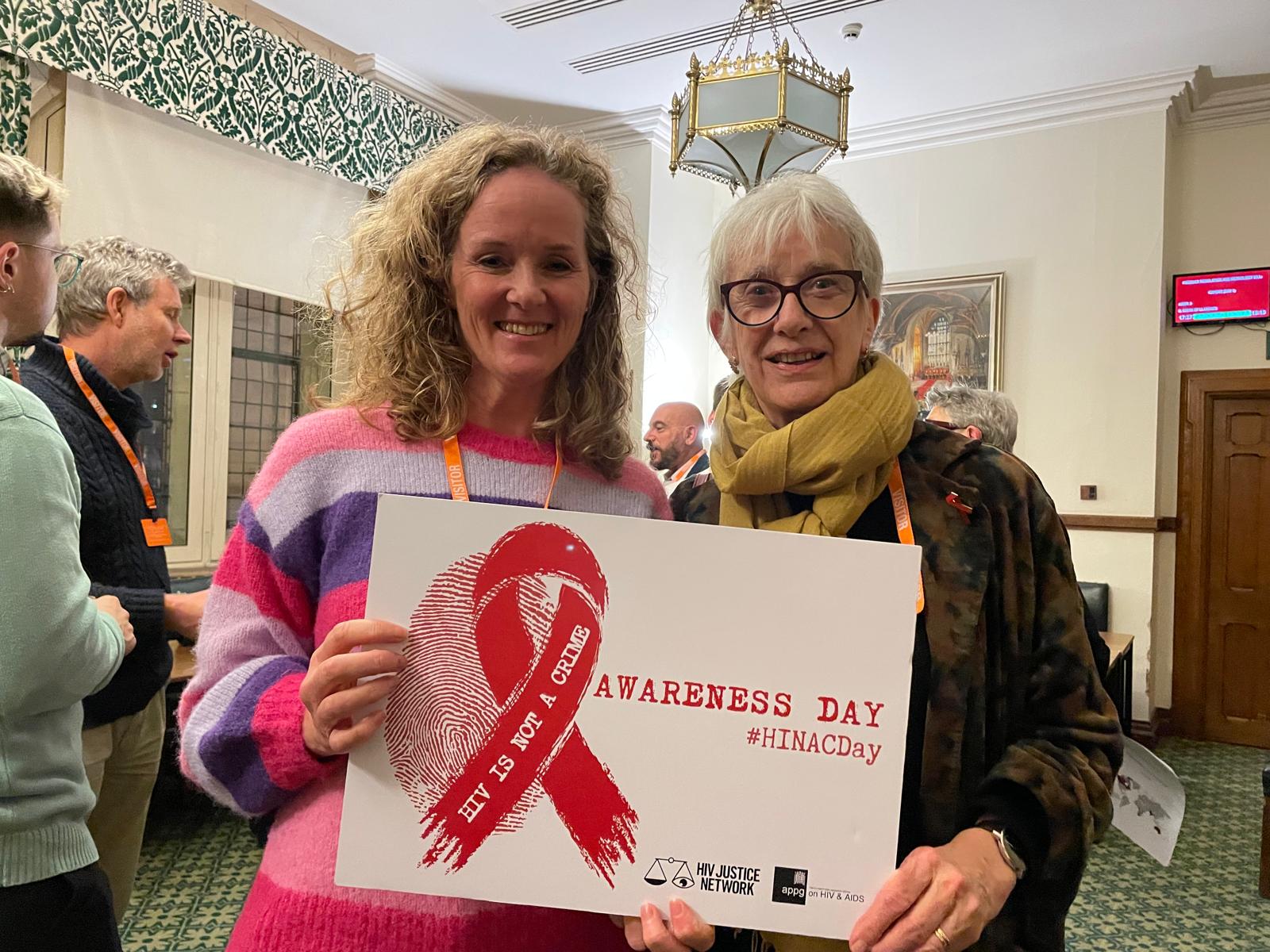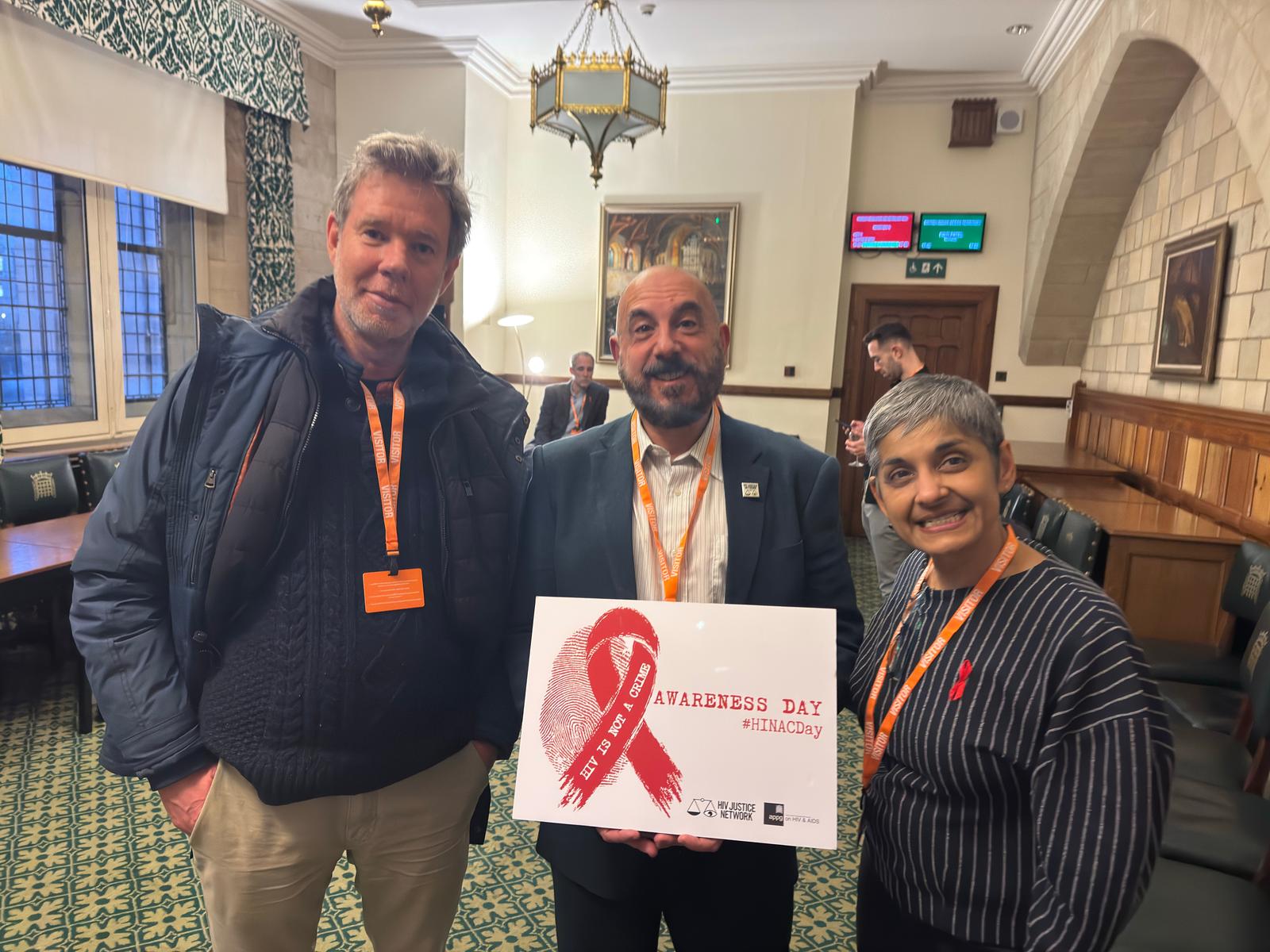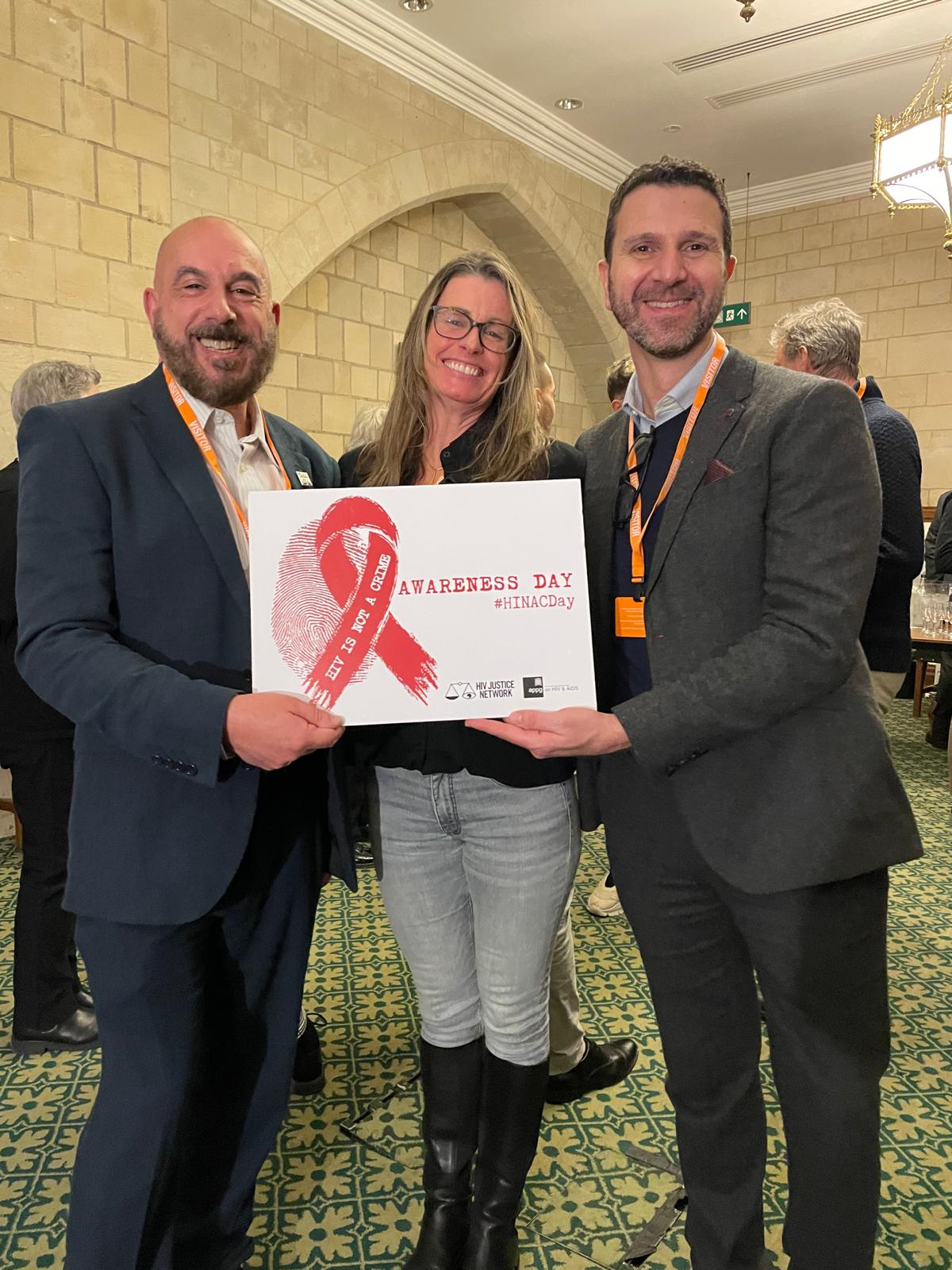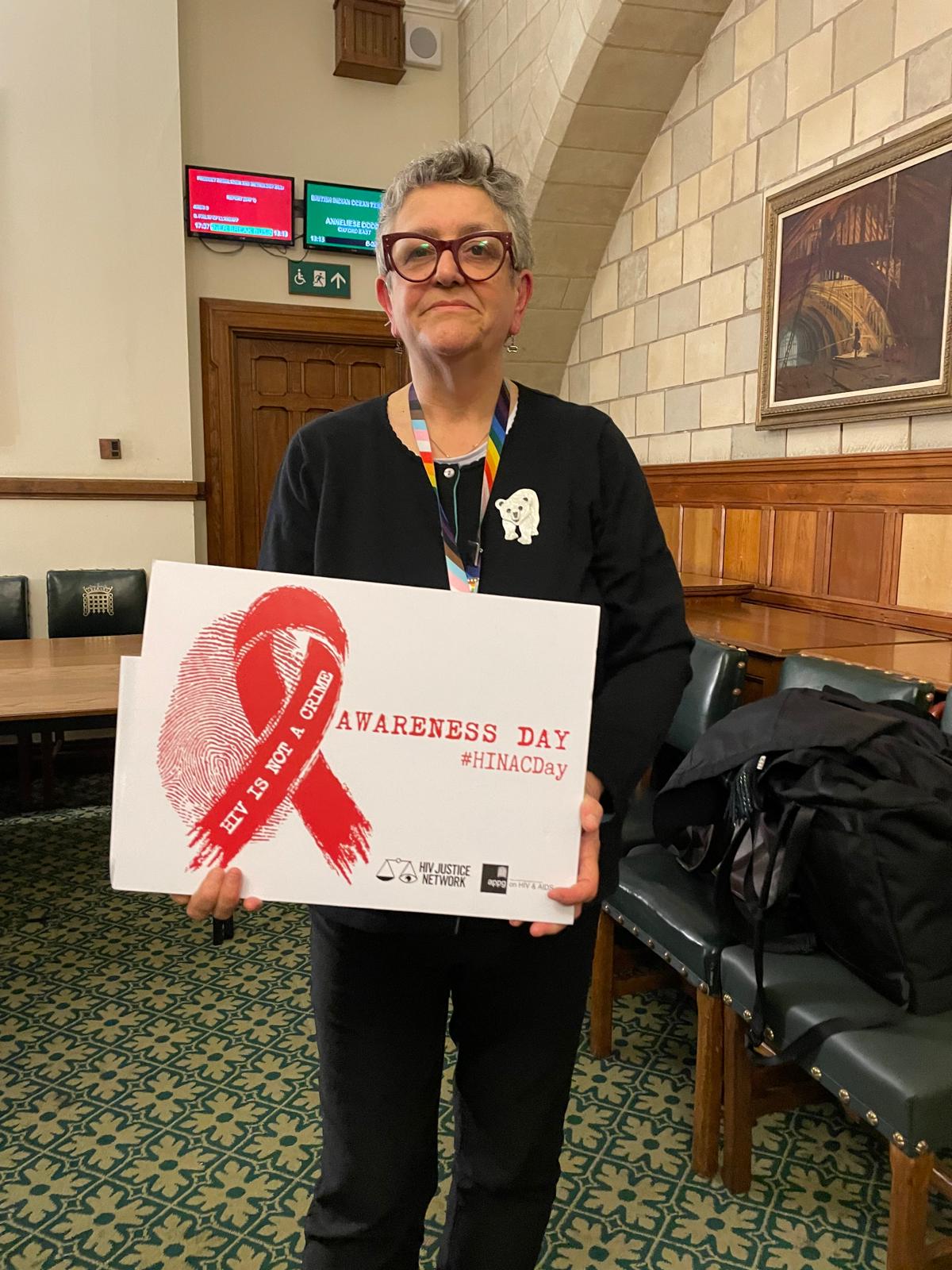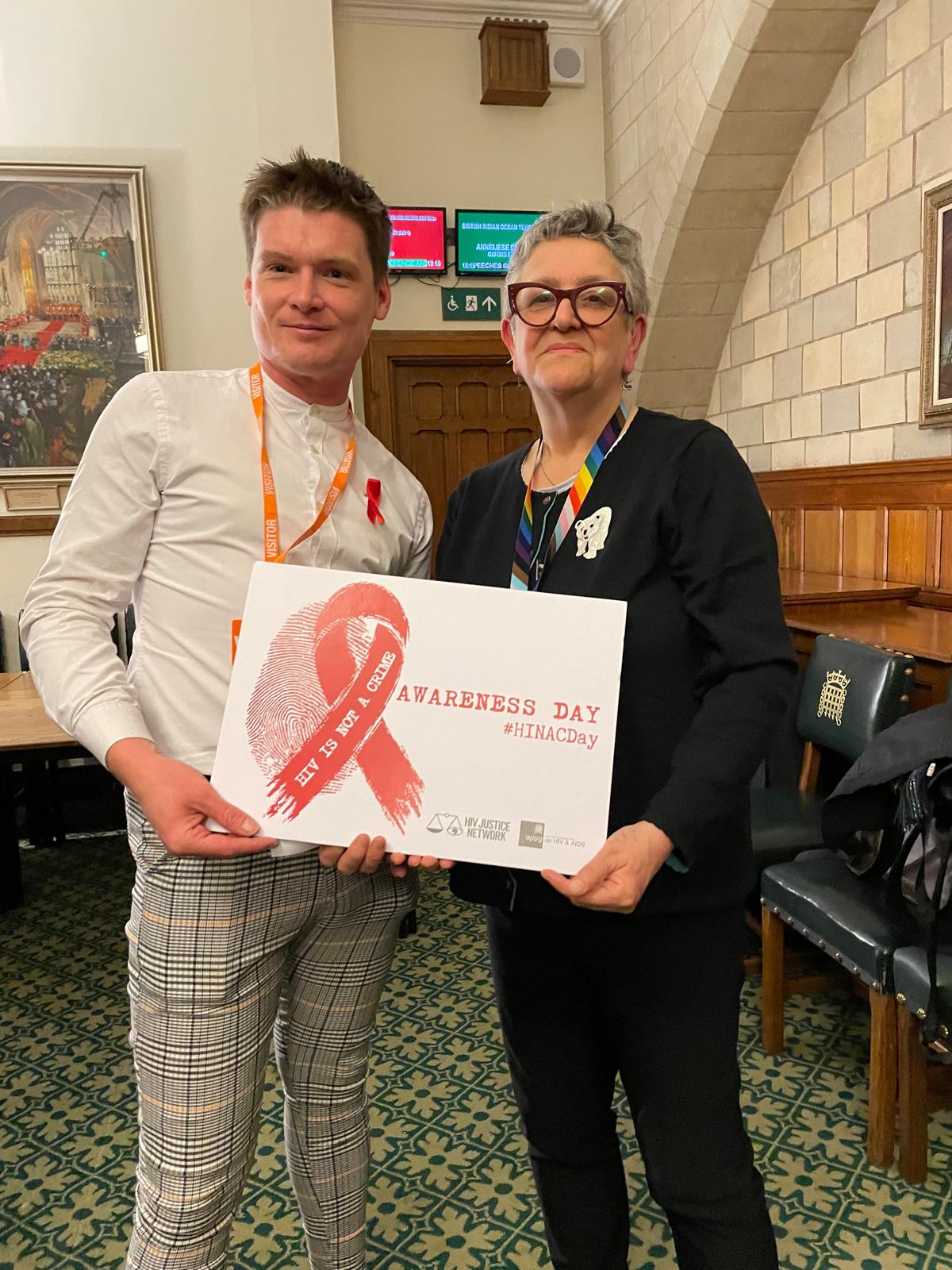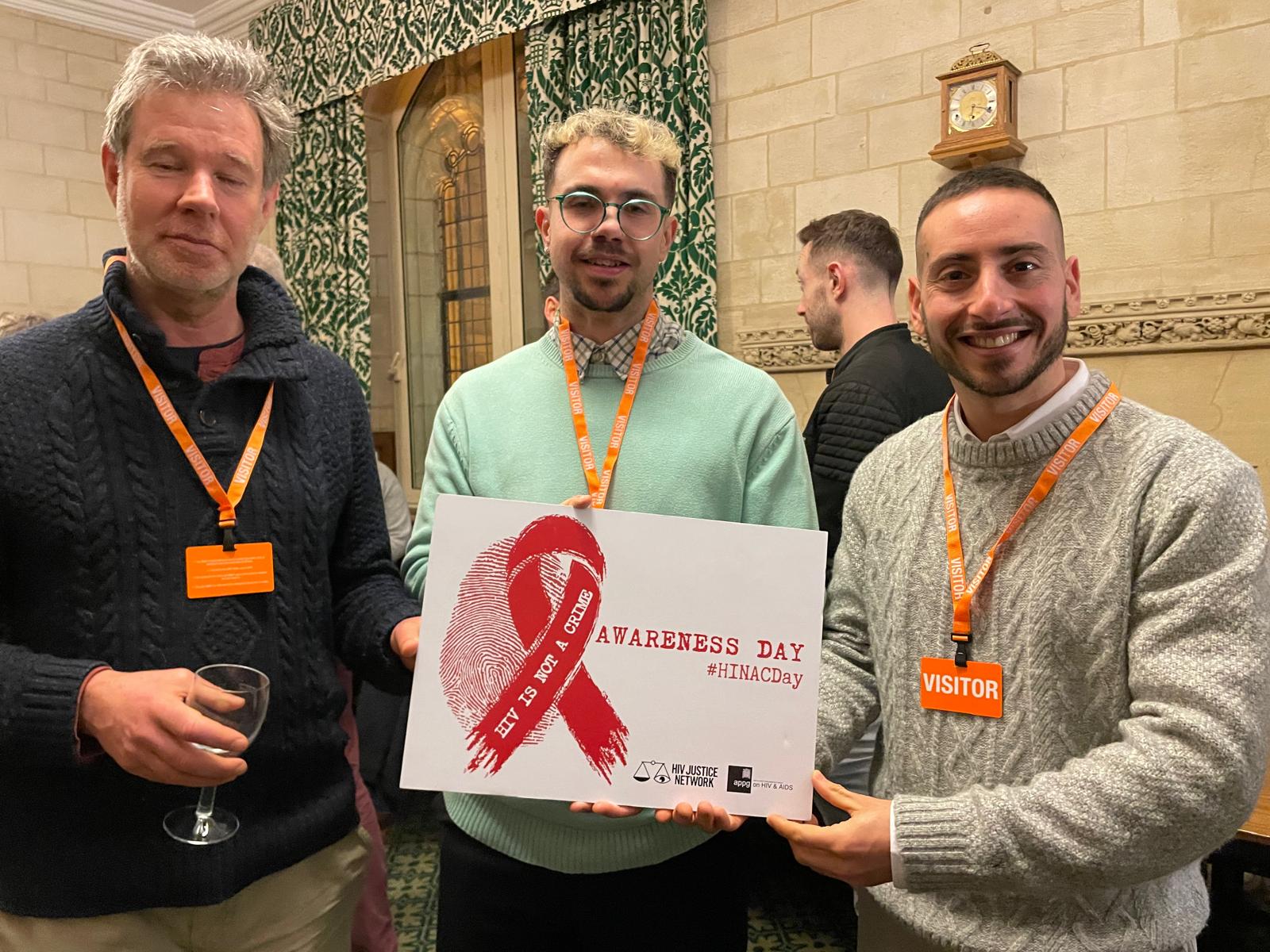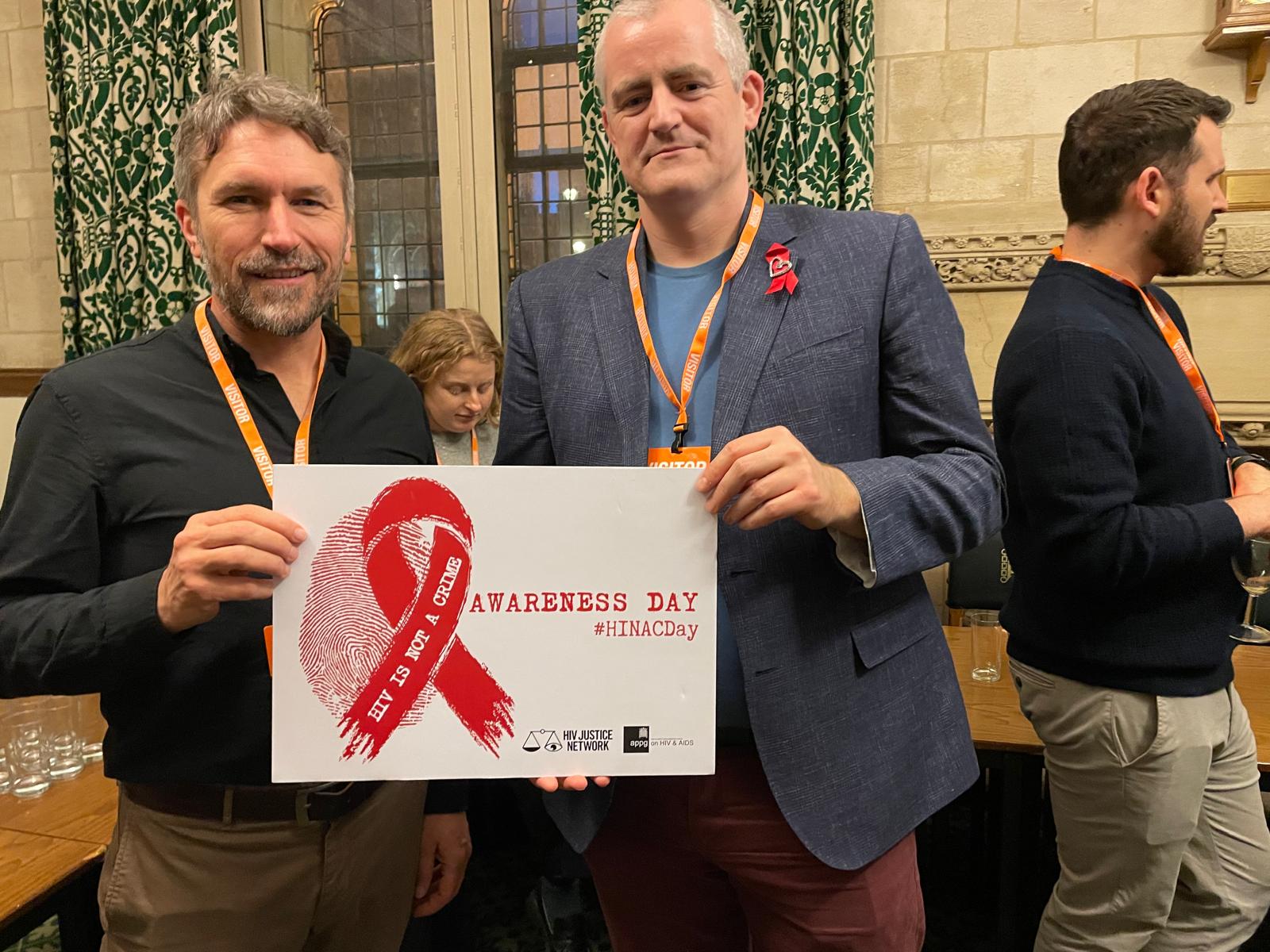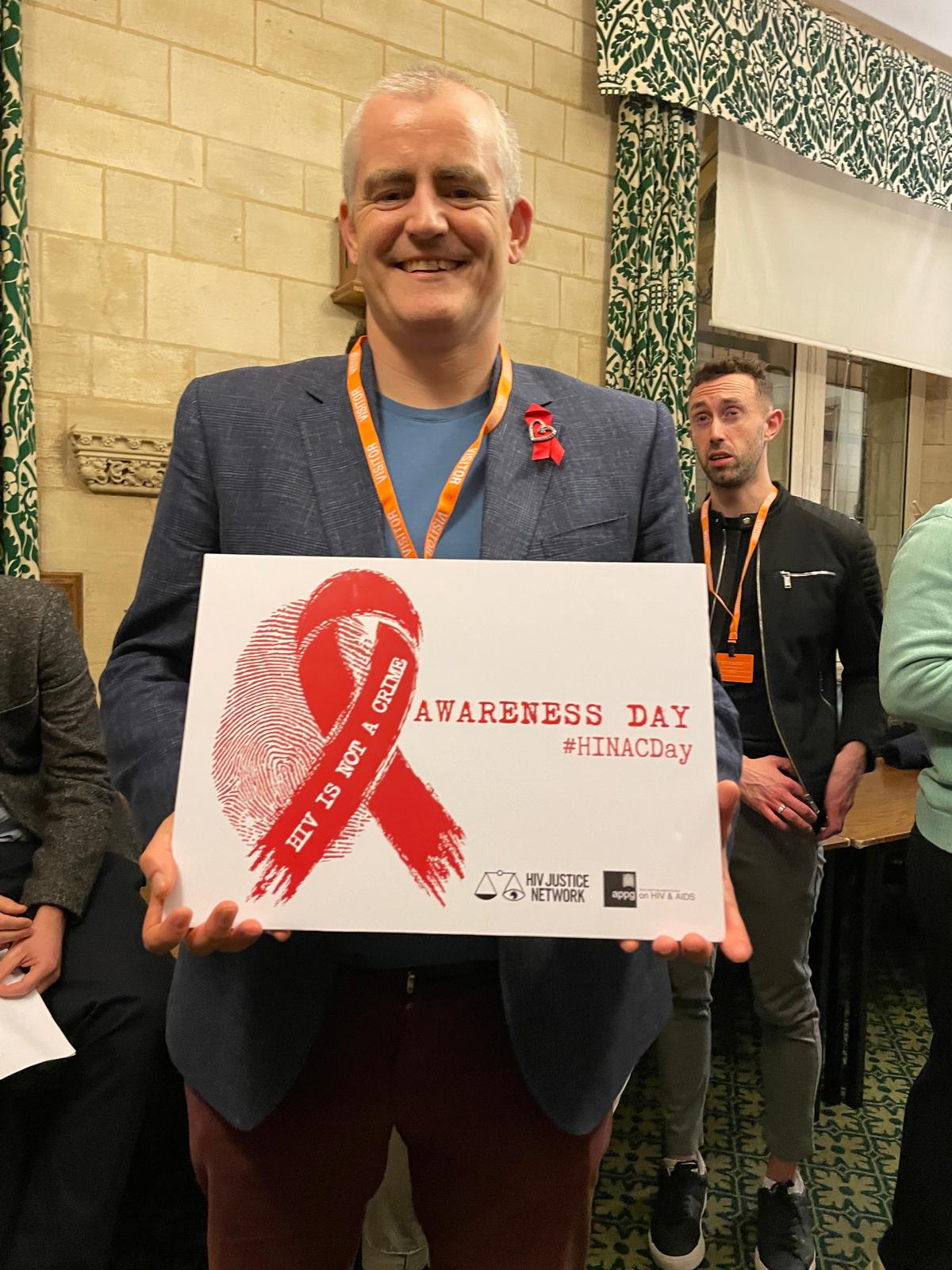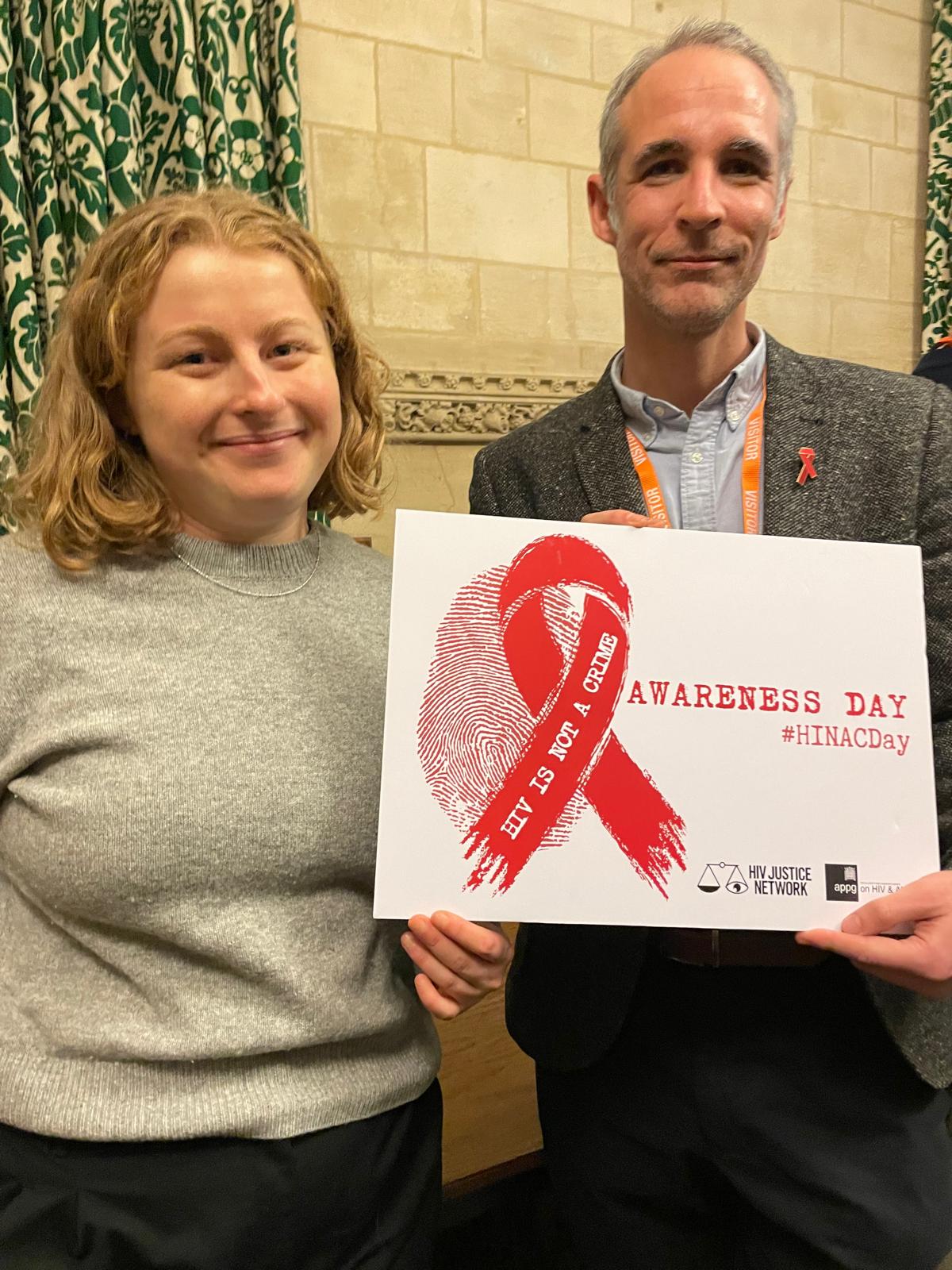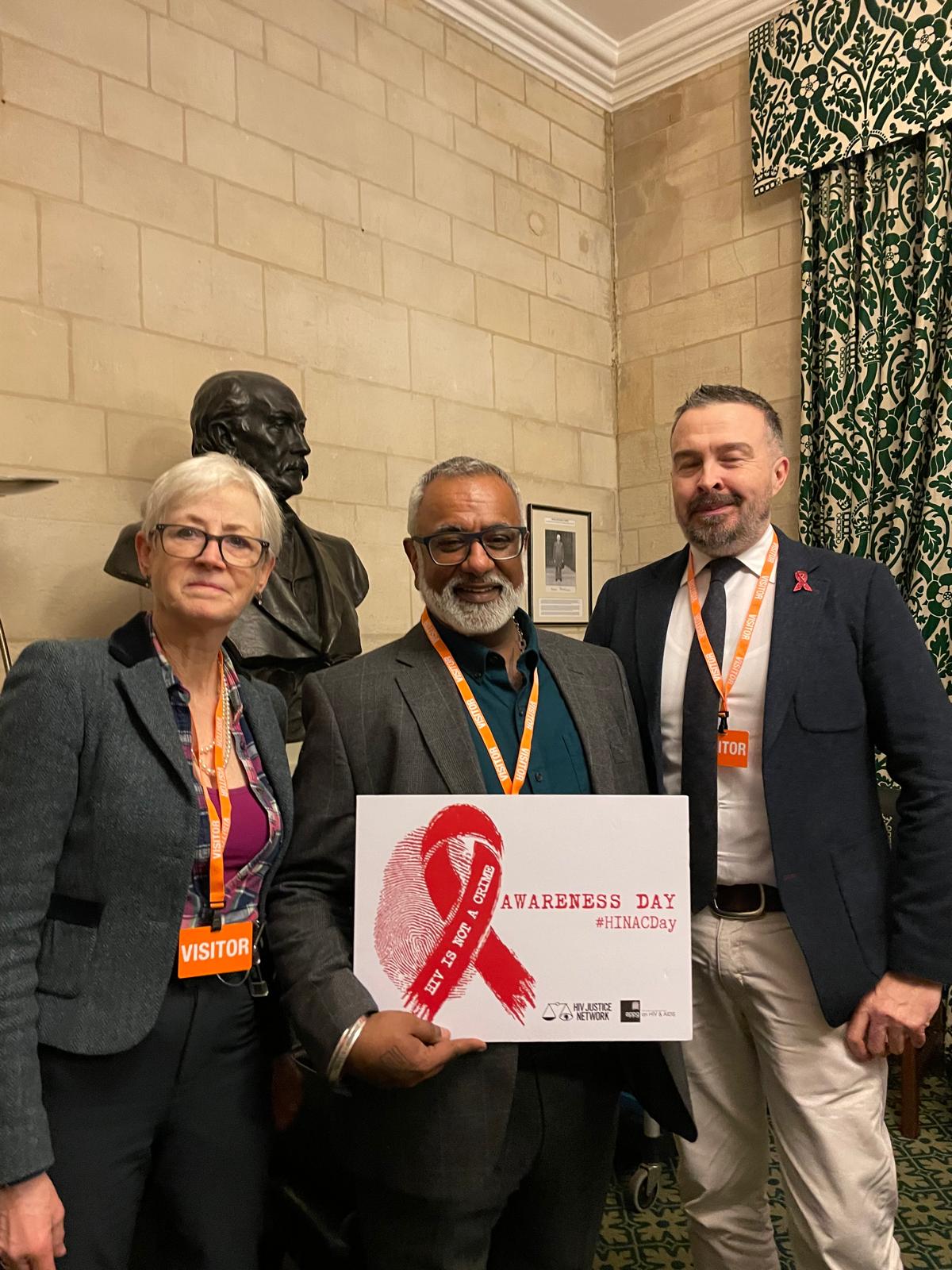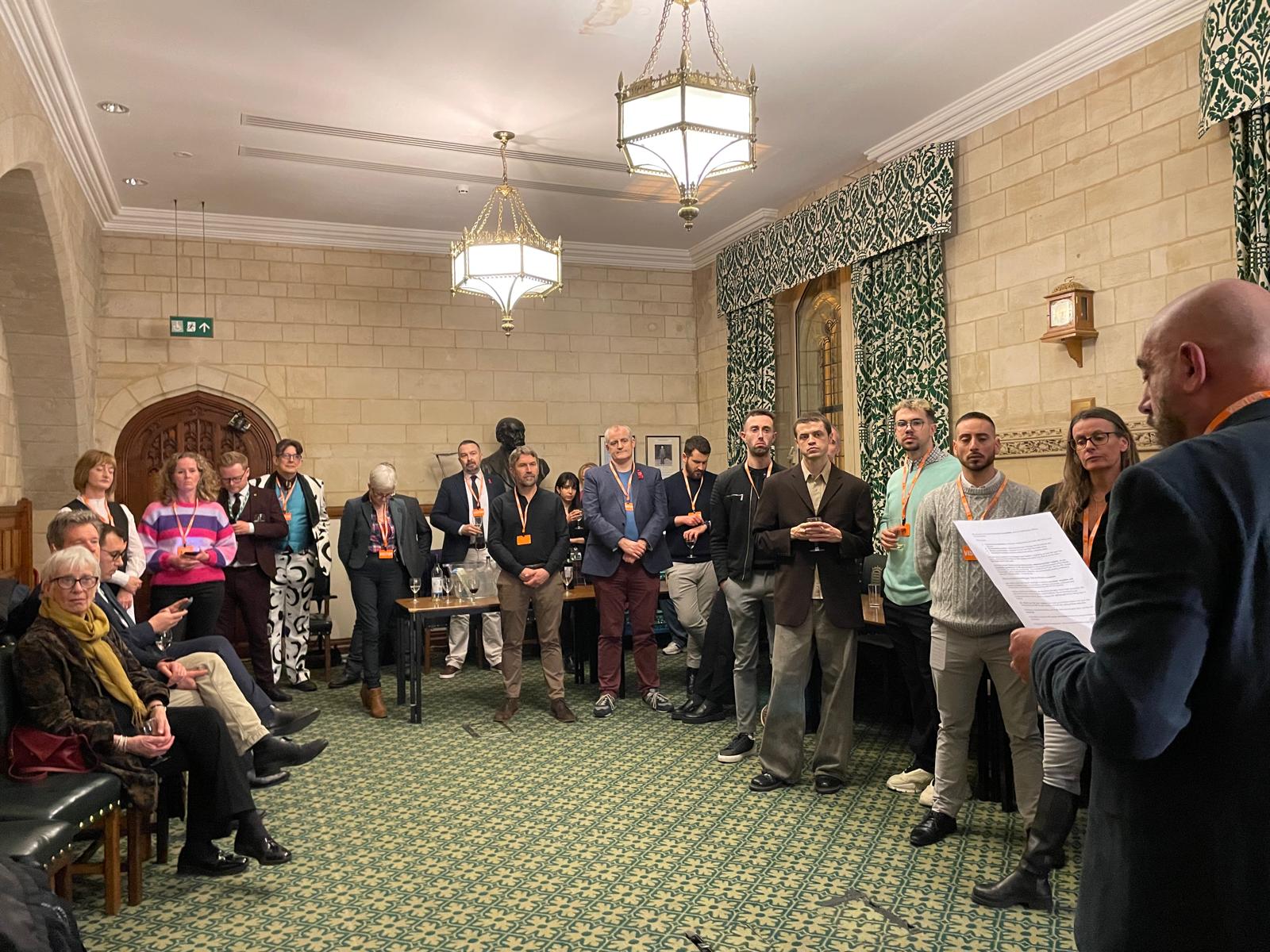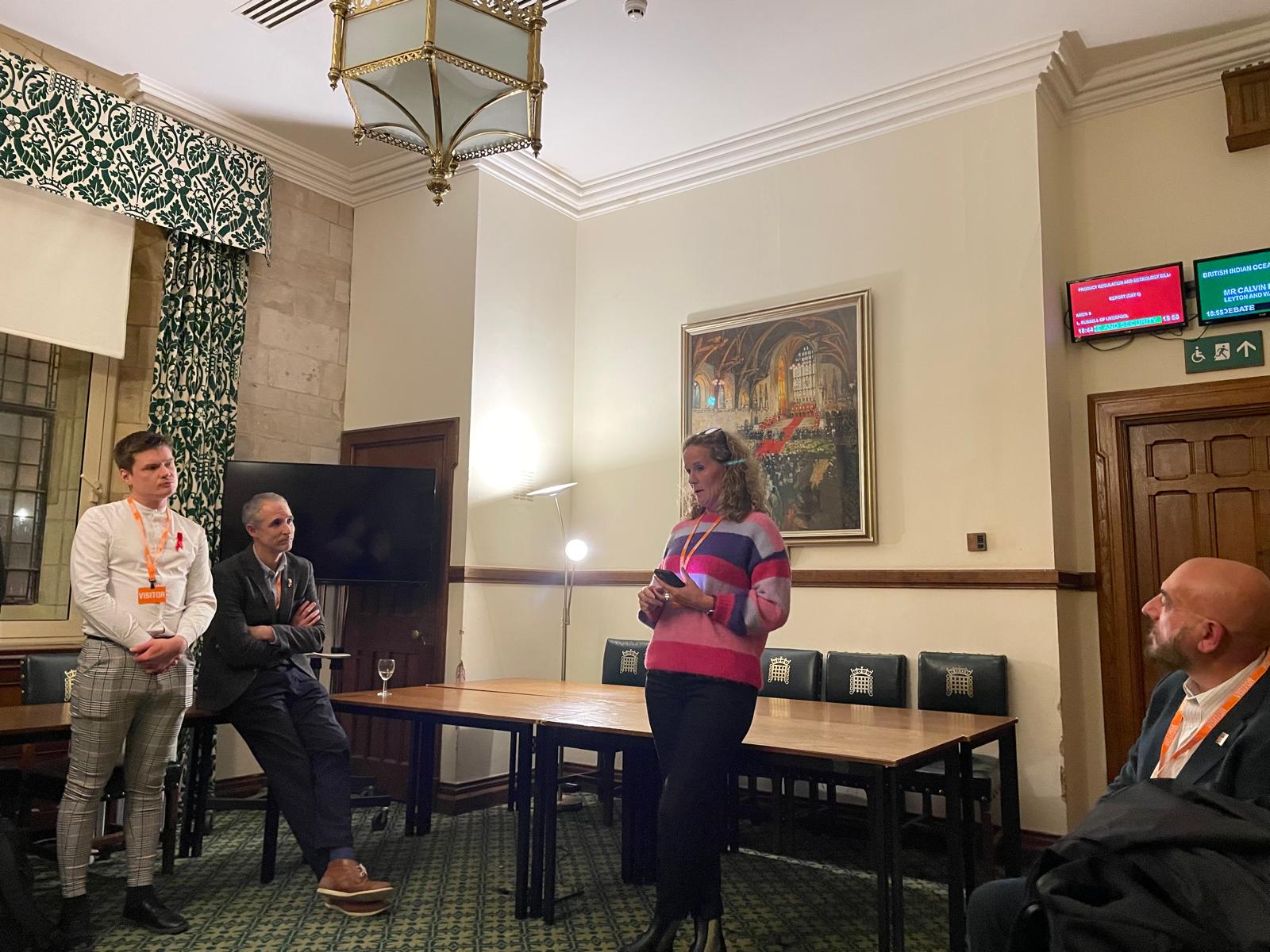Translated from Spanish with Deepl.com – Scroll down for original article
- Cesida, the Legal Clinic of the University of Alcalá and the Fernando Pombo Foundation have achieved an important ruling that recognises for the first time discrimination based on the HIV status of a person.
- The legal standing in court of social organisations such as CESIDA paves the way for greater protection of the rights of vulnerable people.
Cesida (the Spanish HIV/AIDS Coordinating Committee), the Legal Clinic of the University of Alcalá and the Fernando Pombo Foundation have obtained a pioneering court ruling on equality and non-discrimination based on HIV status in Spain. The case concerned discrimination suffered by a person with HIV in the administrative sphere. Specifically, a resolution of the Directorate General of Traffic (DGT) has been declared null and void on the grounds that it was discriminatory, as it reduced the validity of a citizen’s driving licence by half solely because he or she is living with HIV, without any justification and without following the established procedure.
The Citizens’ Anti-AIDS Commission of Navarre has accompanied “Pedro” throughout the process, providing support and advice from the outset. Their work, like that of other organisations that work directly with people with HIV, is essential to guarantee the defence of the rights of people with HIV and to offer the necessary support in these situations of discrimination. At CESIDA we would like to thank them for their commitment and that of all the organisations that fight against stigma and inequality every day.
Active legitimisation of social organisations
The case shows how social organisations such as CESIDA can better defend people in vulnerable situations under Law 15/2022 of 12 July, which is comprehensive for equal treatment and non-discrimination.
Oliver Marcos, general secretary of CESIDA, declared: ‘This ruling is a crucial step in the defence of the rights of people with HIV. There is still much to be done, but we are firmly committed to continuing to fight against the stigmatisation and discrimination suffered by people with HIV in our society.’
The active legitimisation of social organisations is a key channel for those who, due to their vulnerable situation, do not want to or cannot appear in a judicial process. Social organisations assume their legal representation by exercising their right to effective judicial protection without the affected person having to be part of the process, their authorisation being sufficient. In this way, the role of the third sector is reinforced when the organisations have among their aims the defence and promotion of human rights, without extending the scope to abstract or media defences without real content.
In this case, the person who felt that their right to equal treatment had been violated consulted the DGT’s decision with CESIDA. Three students, tutored by two professors, from the Legal Clinic of the University of Alcalá, which has collaborated with CESIDA for many years, considered that this could be a case of direct discrimination based on serological status. The Legal Clinic of the UAH then contacted the Fernando Pombo Foundation, which promotes and coordinates pro bono legal advice projects to improve the rule of law. The Fernando Pombo Foundation considered that this was a strategic issue for the achievement of its aims and also involved a team of pro bono lawyers from the law firm Gómez-Acebo & Pombo, and together they planned the legal strategy.
Ana Higuera, director of the Fernando Pombo Foundation, emphasises that ‘for us, participating in the defence of this case has been a stimulus for our mission. The admission of the claim by CESIDA, without the need for individual visibility of the person with HIV, represents a key advance in the legal approach to avoiding discrimination that, although not always visible, is real. Furthermore, the judgement’s analysis of how the discrimination occurred is clear and direct, which I consider essential to raise awareness of real situations of discrimination and differentiate them from others in which differential treatment is appropriate. In this sense, I believe that the judgement is educational and useful’.
This is one of the first cases in which, in accordance with Law 15/2022, the legitimacy of an association constituted for the purpose of defending human rights is recognised to combat a situation of discrimination in the field of public law.
The sentence: discrimination based on serological status in the renewal of a driving licence
On 24 October 2022, the DGT (Directorate General of Traffic) informed Pedro (not his real name) that his driving licence had been renewed for half the normal period (5 years instead of 10) and the only apparent reason was that he had disclosed during the medical check-up that he had HIV and was taking the corresponding antiretroviral treatment, without this affecting his ability to drive in any way.
Although the limitation on renewal may not be very relevant, the interest of the case lies in the recurrence with which situations similar to this one occur every day in the lives of people with HIV, who continue to be stigmatised despite advances in the treatment and prevention of transmission of the virus thanks to the efficacy and safety of antiretroviral drugs. Faced with this decision by the DGT, Pedro authorised CESIDA to lodge an appeal, which was possible thanks to the provisions of article 29 of Law 15/2022, which introduces the active legitimation of social entities with certain requirements.
Once the evidence had been presented and the arguments put forward by the team of pro bono lawyers from the law firm Gómez-Acebo & Pombo defending CESIDA’s claim, the Administrative Court ruled in favour of CESIDA and annulled the DGT’s decision on the grounds that it was discriminatory. This ruling is a pioneering pronouncement in our country. It literally says:
‘But discrimination occurs in several ways. The applicant is discriminated against when the procedure established in article 44.3 of the General Drivers Regulations is not followed. The applicant is discriminated against when, on appeal, the provision established in section 13 of Annex IV itself is not taken into account, according to which ‘except if the interested party accompanies a favourable medical opinion’, a report that appears on page 10 of the administrative file indicating that ‘the influence of Dovato on the ability to drive and use machines is nil or insignificant (see technical data sheet)’. The applicant is discriminated against when the decision adopted is a flat-out one, as evidenced by the fact that the administrative file begins with the applicant’s complaint, which is classified as an appeal, with no record of any previous action.
The renewal applicant is treated differently, as the established general rule (renewal for a period of ten years) does not apply to him. It is done because he is HIV positive, without any justification and without following the procedure that, in any case, would be established for this purpose.’
After the sentence was handed down, the DGT has already sent Pedro his new driving licence for the general period, without exceptions, having also notified the finality of the sentence a few days ago.
A precedent against discrimination based on serological status
Miguel Ángel Ramiro, coordinator of the Legal Clinic of the University of Alcalá, emphasised that ‘This case sets an important precedent in Spain as it is a pioneering ruling against discrimination based on HIV status, as well as for the recognition of the standing of social organisations’. And he added: ‘The participation of our students in this process has been key. Not only have they learned about applicable legal norms and procedural issues, but they have also contributed to the fight for equality and social justice, a fundamental aspect in the training of future professionals.’
Oliver Marcos, general secretary of Cesida, emphasised: ‘We encourage people with HIV to turn to associations when they feel their rights have been violated, showing that in this way changes are achieved. In addition, we place special emphasis on the fact that public administrations should be the guarantors of equality and avoid this type of discrimination in any area within their competence.’
Sentencia pionera en España reconoce la discriminación por el VIH
- Cesida, la Clínica Legal de la Universidad de Alcalá y la Fundación Fernando Pombo logran una importante sentencia que reconoce por primera vez la discriminación por razón del estado serológico de una persona con el VIH.
- La legitimación activa ante los tribunales de entidades sociales como CESIDA abre el camino a una mayor protección de los derechos de las personas en situación de vulnerabilidad.
Cesida (Coordinadora Estatal de VIH y sida), la Clínica Legal de la Universidad de Alcalá y la Fundación Fernando Pombo han obtenido un pronunciamiento judicial pionero en materia de igualdad y no discriminación por razón del estado serológico en España. El proceso ha enjuiciado la discriminación sufrida por una persona con el VIH en el ámbito administrativo. En concreto, se ha declarado la nulidad de una resolución de la Dirección General de Tráfico (DGT) por entender que la misma era discriminatoria ya que reducía la vigencia del permiso de conducción de un ciudadano a la mitad únicamente porque vive con el VIH, sin motivación alguna y con ausencia del procedimiento que, en todo caso, está establecido para ello.
La Comisión Ciudadana Antisida de Navarra ha acompañado a «Pedro» durante todo el proceso, brindándole apoyo y asesoramiento desde el primer momento. Su labor, al igual que la de otras entidades que trabajan directamente con personas con el VIH, es esencial para garantizar la defensa de los derechos de las personas con el VIH y ofrecer el respaldo necesario ante estas situaciones de discriminación. Desde CESIDA queremos agradecer su compromiso y el de todas las organizaciones que día a día luchan contra el estigma y la desigualdad.
Legitimación activa de las entidades sociales
El caso muestra cómo las organizaciones del ámbito social como CESIDA pueden defender mejor a personas en situación de vulnerabilidad en virtud de la Ley 15/2022, de 12 de julio, integral para la igualdad de trato y la no discriminación.
Oliver Marcos, secretario general de CESIDA, declaró: “Esta sentencia es un paso crucial en la defensa de los derechos de las personas con el VIH. Aún queda mucho por hacer, pero tenemos el firme compromiso de seguir luchando contra la estigmatización y la discriminación que sufrimos las personas con la infección por el VIH en nuestra sociedad.”
La legitimación activa de las entidades sociales resulta una vía clave para aquellas personas que por estar en una situación de vulnerabilidad no quieren o no pueden personarse en un proceso judicial. Las organizaciones sociales asumen su representación legal ejerciendo su derecho a la tutela judicial efectiva sin que la persona afectada tenga que formar parte del proceso, bastando su autorización. De este modo, se refuerza el papel del tercer sector cuando las organizaciones tengan entre sus fines la defensa y promoción de los derechos humanos, sin que se amplíen los ámbitos a defensas abstractas o mediáticas sin contenido real.
En este caso, la persona que sintió vulnerado su derecho a la igualdad de trato consultó con CESIDA la decisión de la DGT. Tres estudiantes, tutorizados por dos profesores, de la Clínica Legal de la Universidad de Alcalá, que colabora desde hace muchos años con CESIDA, consideraron que podría tratarse de un supuesto de discriminación directa por razón del estado serológico. La Clínica Legal de la UAH contactó entonces con la Fundación Fernando Pombo, que impulsa y coordina proyectos de asesoramiento jurídico pro bono para mejorar el Estado de Derecho. La Fundación Fernando Pombo consideró que se trataba de un tema estratégico para la consecución de sus fines e involucró también un equipo de abogados pro bono del despacho Gómez-Acebo & Pombo, y juntos planificaron la estrategia jurídica.
Ana Higuera, directora de la Fundación Fernando Pombo, destaca que “para nosotros participar en la defensa de este caso ha sido un estímulo para nuestra misión. La admisión de la reclamación por CESIDA, sin necesidad de una visibilidad individual de la persona con el VIH, representa un avance clave en el enfoque jurídico para evitar discriminaciones que, aunque no siempre son visibles, son reales. Además, el análisis que realiza la sentencia sobre cómo se ha producido la discriminación es claro y directo, lo que considero fundamental para concienciar sobre situaciones reales de discriminación y diferenciarlas de otras en las que el trato diferenciado es adecuado. En este sentido, creo que la sentencia es pedagógica y útil”.
Se trata de uno de los primeros casos que, conforme a la Ley 15/2022, se reconoce la legitimación de una asociación constituida con el fin de defender los derechos humanos para combatir una situación de discriminación en el ámbito del Derecho público.
La sentencia: discriminación por estado serológico en la renovación del permiso de conducir
El 24 de octubre de 2022 la DGT comunicó a Pedro (nombre ficticio) la renovación de su permiso de conducción reducida a la mitad de tiempo (5 años en lugar de 10) y la única razón aparente fue que éste comunicó en la revisión médica que tenía el VIH y tomaba el correspondiente tratamiento antirretroviral, sin que esto afectará en modo alguno a su capacidad de conducir.
Aunque la limitación de la renovación pudiera resultar poco relevante, el interés del caso está en la recurrencia con que situaciones similares a ésta se producen todos los días en la vida de las personas con el VIH, que siguen siendo estigmatizadas a pesar de los avances en el tratamiento y la prevención de la transmisión del virus gracias a la eficacia y seguridad de los fármacos antirretrovirales. Ante esta decisión de la DGT, Pedro autorizó a CESIDA a interponer un recurso contencioso-administrativo, lo que pudo hacerse gracias a la previsión del artículo 29 de la Ley 15/2022 que introduce la legitimación activa de las entidades sociales con ciertos requisitos.
Una vez practicada la prueba y expuestos los argumentos por el equipo de abogados pro bono del despacho Gómez-Acebo & Pombo que defendían la pretensión de CESIDA, el Juzgado de lo contencioso-administrativo falló en favor de CESIDA y ha anulado la resolución de la DGT por entender que la misma es discriminatoria. Esta sentencia es un pronunciamiento pionero en nuestro país. Textualmente dice:
“Pero es que la discriminación se produce de varias maneras. Se discrimina al solicitante al no seguirse el procedimiento establecido en el artículo 44.3 del Reglamento General de Conductores. Se discrimina al solicitante cuando en vía de recurso no se tiene en cuenta la previsión establecida en el propio apartado 13 del Anexo IV conforme a la que “excepto si el interesado acompaña un dictamen facultativo favorable”, informe que consta en el folio 10 del expediente administrativo en el que se indica que “la influencia del Dovato sobre la capacidad de conducir y utilizar máquinas es nula o insignificante (consultar ficha técnica)”. Se discrimina al solicitante cuando la decisión adoptada lo es de plano, como acredita el que el expediente administrativo se inicia con la reclamación del solicitante que se califica como recurso de alzada, sin que conste ninguna actuación previa.
Se trata de forma diferente al solicitante de la renovación, al que no se aplica la norma general establecida (renovación por plazo de diez años), se hace por su condición de seropositivo, sin motivación alguna y con ausencia del procedimiento que, en todo caso, estaría establecido para ello.”
Después de recibirse la sentencia, la DGT ya ha enviado a Pedro su nuevo permiso de conducir por el período general, sin excepciones, habiéndose, además notificado la firmeza de la sentencia hace unos días.
Un precedente contra la discriminación por razón del estado serológico
Miguel Ángel Ramiro, coordinador de la Clínica Legal de la Universidad de Alcalá, recalcó “Este caso sienta un precedente importante en España al ser un pronunciamiento pionero contra la discriminación por razón del estado serológico; así como para el reconocimiento de la legitimación activa de las entidades sociales”. Y añadió: “La participación de nuestros estudiantes en este proceso ha sido clave. No solo han aprendido sobre normas jurídicas aplicables y cuestiones procedimentales, sino que también han contribuido a la lucha por la igualdad y la justicia social, un aspecto fundamental en la formación de futuros profesionales.”
Oliver Marcos, secretario general de Cesida, enfatizó: “Animamos a las personas con el VIH a acudir a las asociaciones cuando sientan vulnerados sus derechos, evidenciando que de esta manera se logran cambios. Además, hacemos especial hincapié en que las administraciones públicas deben ser las garantes de la igualdad y evitar este tipo de discriminación en cualquier ámbito de su competencia.”
